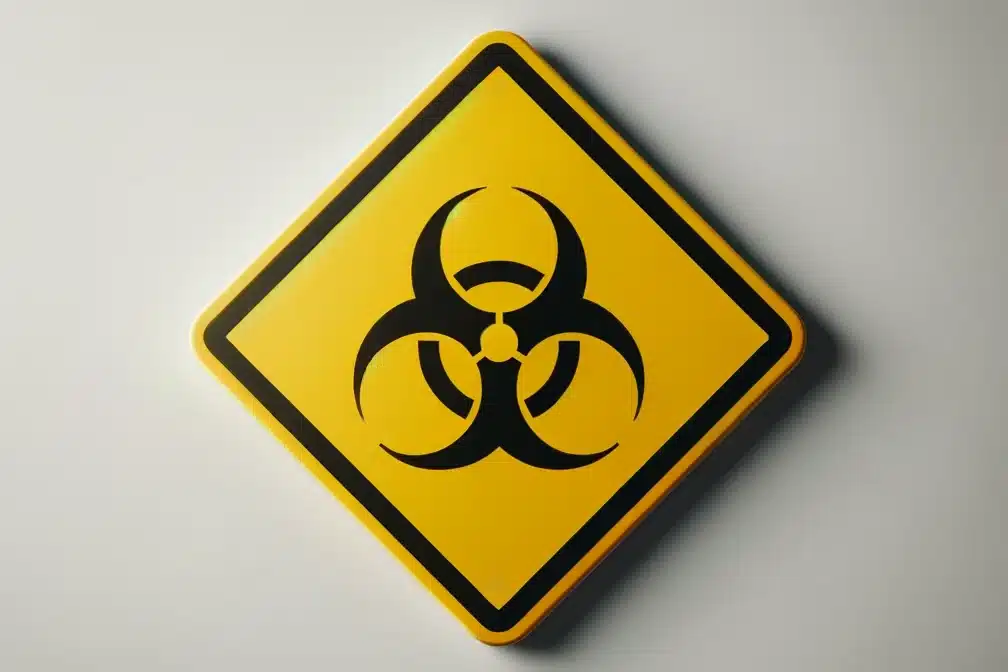July 27, 2024 12:37 am
BRINGING THE AMERICAN TRUCK DRIVER THE LATEST TRUCK DRIVER NEWS

Hazmat Transport Fees Could Increase Under Proposed DOT Rule
Small Businesses to Face 50% Hike in Hazmat Transport Fees
The Department of Transportation’s Pipeline and Hazardous Materials Safety Administration (PHMSA) recently announced a proposed rule change that could significantly impact the trucking industry, particularly for those who haul hazardous materials. Published in the Federal Register on May 24, 2024, the notice outlines adjustments to the national hazardous materials transportation registration and fee assessment program, with small businesses seeing a 50% increase in their hazmat transport fees.
Overview of the Proposed Changes in Hazmat Transport Fees
Since 2010, the annual registration fees for transporting hazardous materials have been $250 for small businesses and not-for-profit organizations, and $2,575 for large businesses, with an additional $25 processing fee for all registrants. Under the new proposal, small business fees would rise to $375 annually, while large businesses would see an increase to $3,000 per year, the maximum allowed by current federal statutes.
Truck drivers and carriers can pay these fees up to three years in advance. However, those who have already prepaid for years that might be impacted by the new rule would need to pay the additional amount if the proposal is approved.
Justification for the Increase in Hazmat Transport Fees
The fee adjustments are intended to bridge the funding gap for the Hazardous Materials Emergency Preparedness (HMEP) grants program. The 2021 infrastructure law increased funding for these grants by $18.5 million, requiring PHMSA to find additional revenue to meet this new target. In the 2022-23 registration year, total funds collected from all registrants amounted to $24.6 million, significantly less than the $46.8 million specified for emergency preparedness grants.
Impact on Small Businesses
The proposed increase in hazmat transport fees has raised concerns among small business truckers, who make up 79% of the 32,202 hazardous material registrants. The Owner-Operator Independent Drivers Association (OOIDA) has voiced strong opposition, highlighting the financial strain on single-truck owner-operators who already operate on thin margins.
“Another increase in small-business regulatory fees would further disadvantage individuals who in many cases are already operating on much thinner margins compared to larger, corporate carriers,” OOIDA stated in their comments. Despite this, OOIDA acknowledges the necessity of the fee increase to ensure adequate funding for the HMEP program but opposes any fee hikes on small businesses.
Ensuring Equitable Fee Distribution
PHMSA has emphasized that the proposed fee structure attempts to balance the financial impact on small versus large businesses. While the percentage increase for small businesses is higher, the actual dollar increase for large businesses is substantially more. The agency is also constrained by the statutory maximum fee of $3,000 for large businesses. PHMSA remains hopeful that Congress will eventually raise this cap to allow for a more equitable fee distribution.
Additional Proposed Changes
Beyond the adjustments in hazmat transport fees, PHMSA has proposed several other changes:
-
Electronic-Only Payments: The agency aims to eliminate check-by-mail options, mandating electronic payments only. This shift is part of a broader effort to increase efficiency and reduce costs associated with paper transactions.
-
Electronic Registration Certificates: Carriers would be allowed to carry their Certificate of Registration in electronic form, as well as paper form, ensuring they are available upon request by authorized personnel or DOT enforcement.
How to Comment on the Proposal
The public has until August 22, 2024, to comment on the proposed rulemaking. Comments can be submitted through the Regulations.gov website by entering Docket No. PHMSA-2022-0033. This is an important opportunity for truckers and stakeholders in the hazardous materials transportation sector to voice their opinions and concerns.
Looking Ahead
The proposed fee increase by PHMSA is a significant development for the trucking industry, especially for small business operators. While aimed at bolstering funding for emergency preparedness grants, the hike poses additional financial challenges for small operators. The coming months will be crucial as the industry reacts and adapts to these potential changes.
Recent Posts
Copyright 2024. All Rights Reserved.
